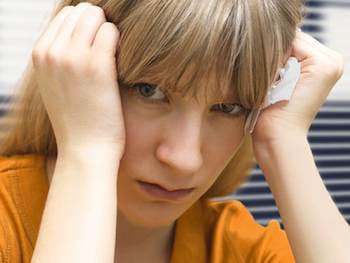- MENU
- HOME
- SEARCH
- WORLD
- MAIN
- AFRICA
- ASIA
- BALKANS
- EUROPE
- LATIN AMERICA
- MIDDLE EAST
- United Kingdom
- United States
- Argentina
- Australia
- Austria
- Benelux
- Brazil
- Canada
- China
- France
- Germany
- Greece
- Hungary
- India
- Indonesia
- Ireland
- Israel
- Italy
- Japan
- Korea
- Mexico
- New Zealand
- Pakistan
- Philippines
- Poland
- Russia
- South Africa
- Spain
- Taiwan
- Turkey
- USA
- BUSINESS
- WEALTH
- STOCKS
- TECH
- HEALTH
- LIFESTYLE
- ENTERTAINMENT
- SPORTS
- RSS
- iHaveNet.com: Health
Sue Hubbard, M.D.

Most cases of mono occur among teens, big fans of kissing and sharing water bottles, glasses, food, even lipstick
I've received several questions via our iPhone App regarding mononucleosis, commonly called "the kissing disease," as the virus is passed in saliva. I think it's because many people were watching the recent "Glee" episode where Finn and Quinn had mono.
Mono is most frequently caused by the Epstein Barr virus, but other viruses may mimic the symptoms of mono. Many of us have been exposed to Epstein Barr virus (EBV) and may not even realized it, while others will develop a viral illness which typically causes sore throat, fever, congestion, swollen lymph nodes and fatigue. Obviously, these symptoms mimic many illnesses.
In my experience, the most classic cases occur among teens, who can often be found kissing one another, as well as sharing glasses, water bottles, food, and even lipstick, which may transmit the virus via contamination with saliva. In most cases, a patient has no idea where they contracted the virus, often because it takes 4 to 10 weeks after exposure to develop the symptoms of mono.
A teen will often come into the office complaining of a very bad sore throat, with or without fever, and swollen lymph nodes in the neck. They usually think they have strep throat, but their throat culture comes back negative for strep. In this case, they're assumed to have a viral pharyngitis.
A typical viral sore throat usually improves over a few days, but with mono, the patient usually feels worse rather than better after 4 to 7 days. Their throat becomes more painful, with more swelling of the tonsils, and the tonsils are often covered with white patches, called exudates.
In some cases, there may be swelling of the upper eyelids (periorbital edema) and a skin rash may develop, especially if the patient had previously been put on a penicillin-related antibiotic for presumed strep. It's interesting that younger children who contract mono often don't have as many of the symptoms as a teen, and indeed they have a shorter illness, so many youngsters with mono are never "officially" diagnosed with the EBV virus, but are now immune to the virus, too.
The easiest way to diagnose mono is with a blood test called a monospot that picks up the EBV antibodies in the bloodstream. It usually takes about a week after symptoms begin to have a positive monospot. Other antibody tests may be run to determine if a patient currently has mono, or has ever had mono, but these are more expensive and take a longer period of time to get results.
The acute symptoms of mono last anywhere from 7 to14 days, but the fatigue may last longer. Because mono is a viral illness, it is not treated with antibiotics. Treatment, like with so many other illnesses, is simply symptomatic: fluids, rest, pain relievers like acetaminophen or ibuprofen (do not use aspirin products in children) and tincture of time.
I also recommend that patients take several weeks off of sports due to the possibility of their spleen (which is lymph tissue, too) becoming swollen. The issue with splenic swelling is the risk of rupture if the spleen is hit, bumped or fallen on during an activity.
Once the patient is feeling better, has been examined again, and their spleen has returned to normal, they may return to their sports. It's also wise to limit a teen's activity so they may get sufficient rest. This basically means that once they're feeling well enough, they can return to school, but other activities are put on hold until their energy returns
As one teenage mono patient aptly put it, "It's like I was grounded, but I didn't even get into trouble." The reason for a slow return to full activity with extra rest is to ensure that within 3-4 weeks of diagnosis the patient is fully recovered.
I've found if you don't tell teens specifics about activities, once their acute symptoms have passed they fail to rest, and the fatigue lasts longer. Sufficient rest and nutrition are essential to recovery. The good news: You only get EBV once!
Dr. Sue Hubbard is a nationally known pediatrician and co-host of "The Kid's Doctor" radio show.
Available at Amazon.com:
Copyright © KIDSDR.COM DISTRIBUTED BY TRIBUNE MEDIA SERVICES, INC.
AGING | ALTERNATIVE | AILMENTS | DRUGS | FITNESS | GENETICS | CHILDREN'S | MEN'S | WOMEN'S
Health - Mono and Epstein Barr Virus: What You Need to Know